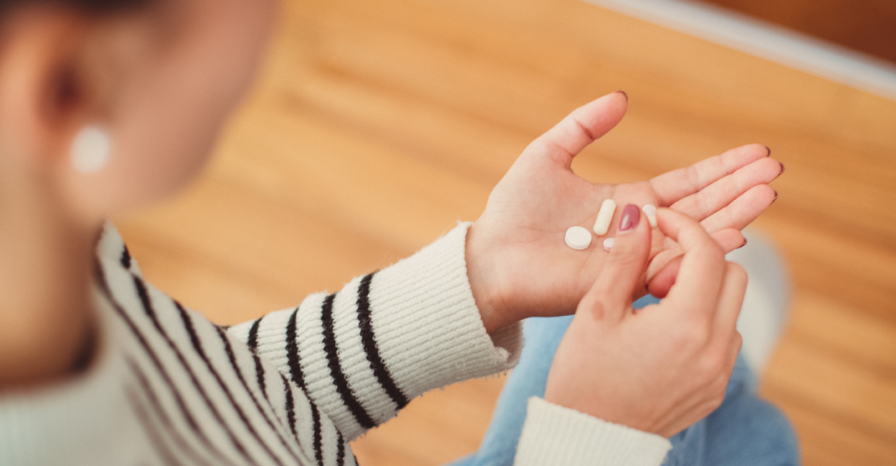
You might want to reconsider Painkillers for PMS
PMS |A simple Google search for period-pain relief drugs will display more than 20 OTC (over-the-counter) drugs that you can find in your local medical store and pop in every time you suffer from period cramps. But is it a wise choice? This article will help you understand why menstrual pain occurs, the mechanism by which these drugs work and how NSAIDS can be harmful to your system in the long run.
Dysmenorrhea is a condition of painful periods and may vary in severity among women.
What are period cramps exactly? Period cramps are experienced due to the contraction of the uterus. Sometimes these contractions are strong enough to radiate to the lower back and leg muscles. Although, not a life-threatening disorder, dysmenorrhea affects a woman’s ability to perform regular activities, which is why Dysmenorrhea is one of the initial reasons a woman seeks a gynecologist’s advice. For many women, it can get severe enough to skip school, college or work.
The hormone responsible for Dysmenorrhea or painful periods is - Prostaglandins (PG). It surges during the bleeding phase of the menstrual cycle when most of the PMS symptoms surface, and its levels drop at the end of the cycle. PG is produced as a result of the COX pathway and is responsible for inflammatory responses experienced during periods that cause:
- Uterine contractions
- Constricted blood flow to the uterus
Other symptoms associated with Dysmenorrhea include dizziness, nausea, vomiting, and diarrhea.
Over-the-Counter Drugs:
The pharmaceuticals prescribed by most pharmacies are Non-Steroidal Anti-inflammatory Drugs (NSAIDs) or hormonal contraceptives. Hence, OTC drugs like Ibuprofen, Vetory-D and Drotin-M may seem to be the only option for women. They promise instant relief, but come with their own set of short-term and long-term side-effects.
How do they work?
Non-steroidal anti-inflammatory drugs (NSAIDs) block the synthesis of prostaglandins (PG). NSAIDs only focus on blocking the PG hormone thus reducing the sensation of pain. One of the side-effects it has is altering the blood flow. It may either result in heavy flow or spotting or even the absence of periods for some women.
Some severe side effects are observed in the long-term use of such painkillers like stomach ulcers. In fact, some of these drugs are contraindicated for women with an existing problem of stomach ulcers. It may lead to acid reflux and other gut health problems.
What are some alternatives to NSAIDs?
Well, depending on the severity of the PMS symptoms experienced, some lifestyle changes can go a long way in helping mitigate the PMS symptoms.
Adequate Water Intake
- Findings of a study concluded that the intake of water affected the duration of menstrual bleeding, proving to provide almost the same relief as pain killers.
Physical Activity
- For some women, aerobic exercise and yoga have shown to reduce their symptoms of Dysmenorrhea.
- Exercising and staying physically active a few days before pre-menstrual symptoms may help with not only the physical symptoms but also, reducing emotional and behavioral symptoms.
Nutrition
- A well-balanced diet on a regular basis will ensure that the daily quota of vitamins and minerals is fulfilled.
- Avoiding foods with caffeine, salt, sugar and carbonated drinks, two weeks before periods may lessen the symptoms of PMS.
Maintain Sleep
- Lack of sleep may lead to aggravated symptoms of PMS like depression, fatigue, and mood swings.
- Getting a good eight hours of sleep each night may help in reducing stress.
Unived’s PMS Management
PMS Management supplement provides complete menstrual support, formulated with natural research-based ingredients along with supportive vitamins and minerals, which have been shown to collectively work on the array of premenstrual symptoms.
The formulation features ingredients like L-theanine, KSM-66 Organic Ashwagandha Root Extract, Curcumin, minerals like Magnesium and Iron and Vitamins like B6 and B3; all of them have a definite role in reducing the symptoms of menstrual pain.
Unlike the generic NSAIDs and contraceptives, these ingredients support reproductive health and contain phytonutrients that naturally block prostaglandins, as well as, take care of the behavioral and emotional implications of PMS; without disturbing the natural hormonal balance of the body.
To know more about Pre-menstrual Syndrome and Unived’s PMS Management supplement, read here.
References:
InformedHealth.org [Internet]. Cologne, Germany: Institute for Quality and Efficiency in Health Care (IQWiG); 2006-. Period pains: Can anti-inflammatory drugs help? 2007 Nov 16 [Updated 2019 Aug 1]. Available from: https://www.ncbi.nlm.nih.gov/books/NBK279323/

